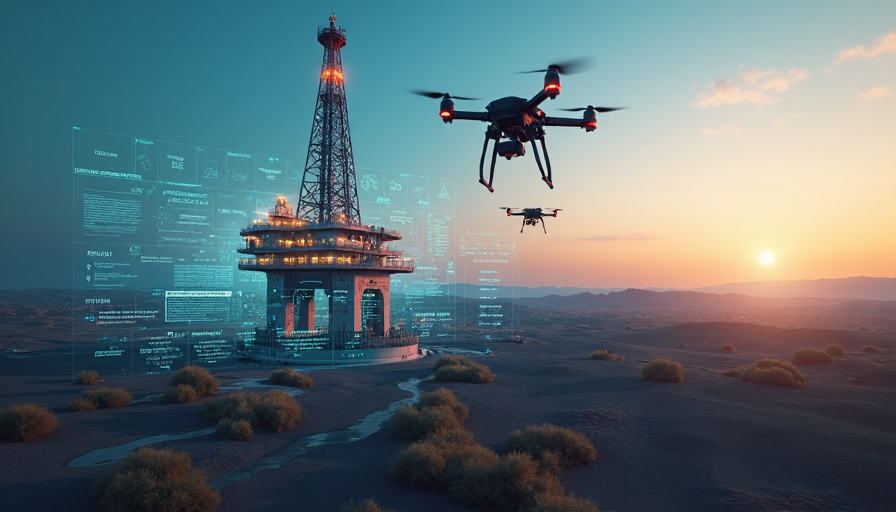
AI Innovations Boost Efficiency in Oil Production
At the recent CERAWeek conference in Houston, industry leaders unveiled how artificial intelligence is revolutionizing oil and gas exploration. As global oil prices fall and geopolitical tensions create an uncertain market, energy companies are increasingly turning to AI to maintain profitability and operational efficiency.
Transforming Drilling Practices
Executives shared that AI is not just an auxiliary tool but a driving force behind faster and more cost-effective drilling. For instance:
-
BP's Advanced Techniques: British Petroleum now employs AI to guide drill bits and predict potential well issues before they occur. Ann Davies, BP’s Senior Vice President of Wells, explained that AI has enabled the company to drill more wells annually and allocate capital more strategically. This innovation comes on the heels of BP’s recent announcement to increase annual oil and gas production spending, aimed at bolstering investor confidence.
-
Devon Energy's Breakthroughs: U.S. oil giant Devon Energy uses machine learning models to monitor activity across its oil rigs nationwide. CTO Trey Lowe detailed how AI analytics allow the company to navigate challenging drilling environments by detecting geological faults early, thereby improving the productive lifespan of wells by nearly 25%.
Enhancing Remote Monitoring and Maintenance
Chevron has introduced AI-powered drones in its operations across Texas and Colorado. These drones conduct aerial surveys of shale fields, identifying issues such as emission leaks and notifying field workers immediately. According to Russell Robinson, Chevron’s Deputy Program Manager, this approach has significantly cut downtime associated with repairs and maintenance, ensuring that more assets remain operational for longer periods. The success of these drone tests has even sparked discussions about deploying similar technology to monitor refineries.
Accelerating Offshore Drilling Operations
Offshore operations, particularly in the Gulf of Mexico, have seen considerable improvements. BP is using AI to rapidly analyze seismic data—reducing analysis time from six to twelve months down to just eight to twelve weeks. This swift evaluation empowers geoscientists to pinpoint optimal drilling locations and anticipate potential challenges.
The Broader Impact of AI
Industry experts believe that recent advances in artificial intelligence, including large-language models, have set the stage for a paradigm shift in oil and gas production. Chicheng Xu, Founder of OpenPetro AI and former petrophysicist at Aramco, noted that AI’s capability to sift through vast data sets, highlight critical features, and present complex visualizations is what truly sets it apart. As markets evolve, the deployment of AI is becoming a critical competitive advantage, with industry leaders warning that those who ignore these technological advances risk falling behind.
In an era where time and cost efficiencies are paramount, the integration of AI into drilling and monitoring practices is paving a path towards a smarter, more resilient energy sector.
Note: This publication was rewritten using AI. The content was based on the original source linked above.